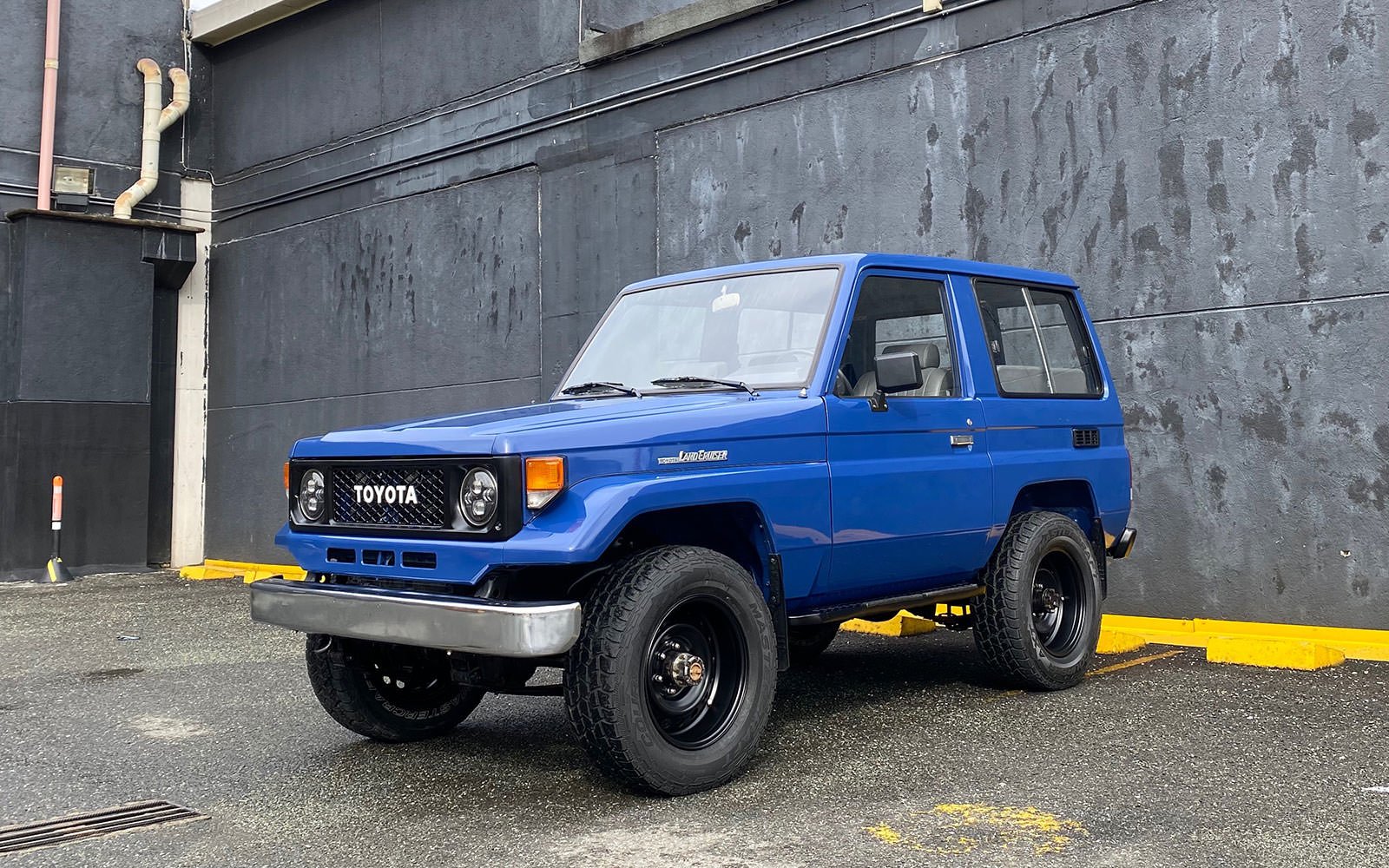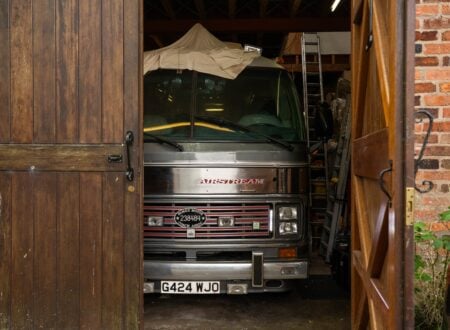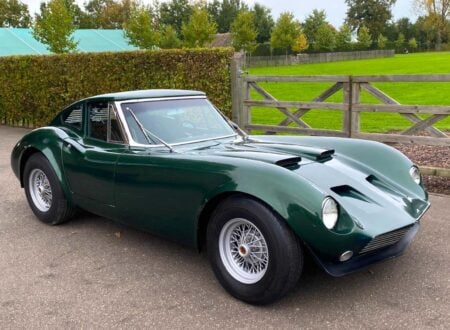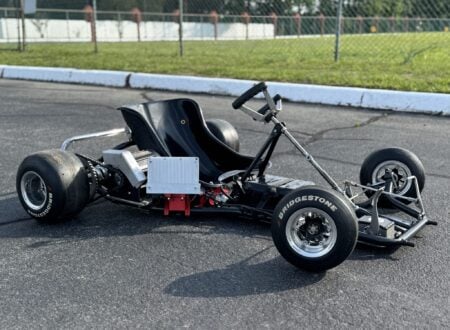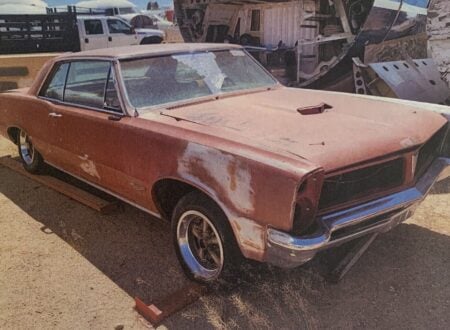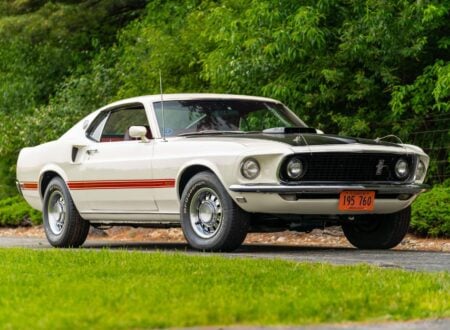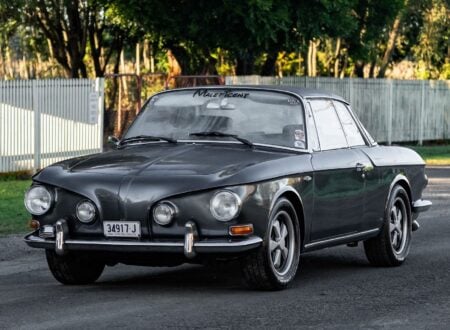When the Toyota Land Cruiser FJ70, and the 70 series family, were introduced to the general public in 1984 Toyota executives must have been watching the reception the vehicles were getting very closely.
Toyota knew if the car was seen as inferior to its forebear it would potentially permanently harm their reputation in the highly competitive world of four-wheel drive manufacturing, a reputation that had been carefully built over the preceding three decades.
The Toyota Land Cruiser 70 Series
The 70 Series was developed to replace the 40 Series Land Cruisers which had grown to become among the most beloved four-wheel drives in the world. As any automaker knows, replacing a model that has become a cult classic in its own lifetime is a risky undertaking, and a strong argument could be made that it’s often bungled in one way or another.
Amazingly Toyota nailed it first time out. The reason the 70 Series Land Cruisers proved so popular was because they kept every single element of the 40 Series that people loved, but very carefully and incrementally updated it. Even the most ardent Toyota diehard would admit that the styling of the 40 Series Land Cruisers was notably dated by the 1980s, and Toyota addressed this concern directly.
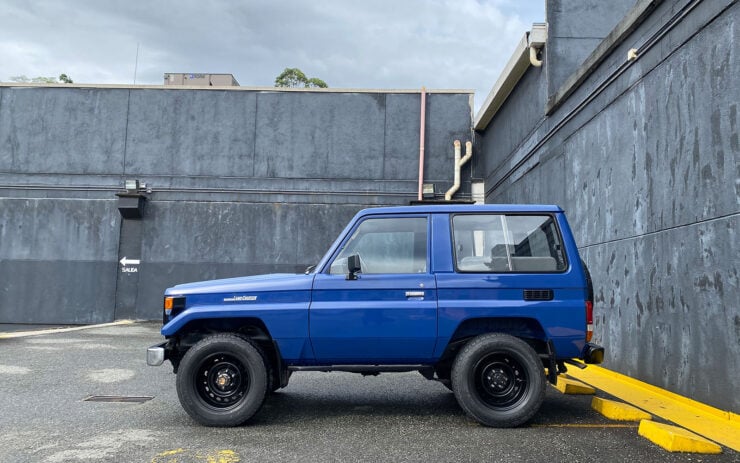
Above Image: The more modern, angular lines of the 70 series was a contrast to its predecessor, but the engineering remained as rugged as ever.
The J40 series was very closely based on the J20 series Land Cruisers which had first been released all the way back in 1955 to compete with the American Jeep and the British Land Rover – in fact the former vehicle inspired its styling and the latter vehicle inspired its name.
Land Cruisers had become popular because they were among the most reliable and capable four-wheel drives in the world, reliability being a key concern when you know you’ll be hundreds of miles from civilisation.
When the engineers at Toyota set out to design the new J70 Land Cruiser they kept the same basic architecture as the J40 vehicles – a ladder frame chassis with live axles and leaf springs front and back, a reliable engine up front, and an all-steel body offered in a variety of lengths to suit different uses.
The new body used on the J70 was clearly inspired by its predecessor but it was a far newer and more modern design throughout, with sharper angles and a purposeful, no-nonsense presence. The interior had been completely updated as well, with much more thought given to the comfort of the occupants than the J40.
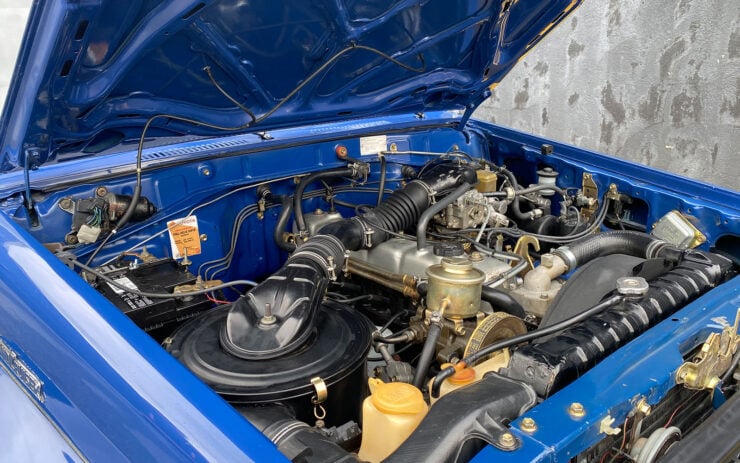
Above Image: Land Cruisers have always been famous for their reliability, most notably for their impossible-to-kill engines.
The 70 series Land Cruisers proved so popular they largely dominated the market in places like Australia, New Zealand, and throughout much of Africa and South America.
The Toyota 70 series has now been in production for over 36 years, its popularity shows no signs of waning and Toyota has no public plans to discontinue or replace it. For reference, the popular 40 series was in production for 24 years.
The 1989 Toyota Land Cruiser FJ70 Shown Here
The 1989 Toyota Land Cruiser FJ70 you see here is an early short wheelbase version with the original, more angular bodywork.
In recent years we’ve seen the values of early J40 Land Cruisers skyrocket, along with other classic four-wheel drives like Series Land Rovers, first generation Ford Broncos, and early International Scouts.
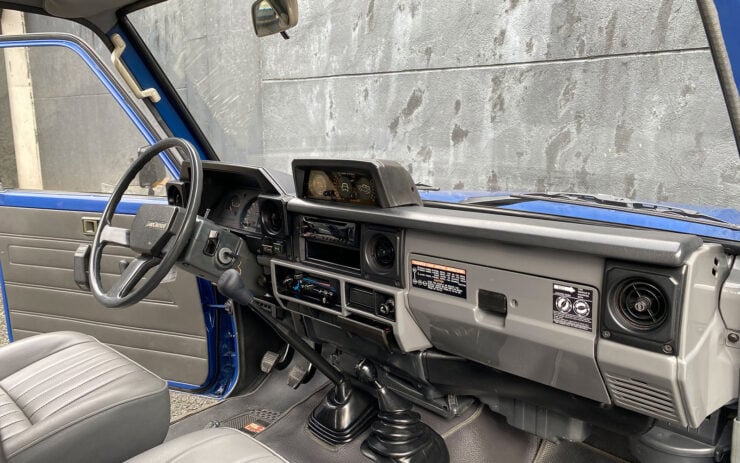
Above Image: The interior of the 70 series Land Cruisers represented a significant upgrade over the outgoing J40.
We haven’t yet seen this meteoric value increase in the later 70 series Land Cruisers but many are speculating that it won’t be long until we do.
The vehicle you see here benefits from a careful recommissioning that includes brand new Toyota blue 8B2 paintwork, gold cadmium plated hardware, original switchgear, controls, and the original upholstery.
It’s fitted with the 3F 4.0 litre inline 6-cylinder petrol engine which is mated to a 5-speed manual transmission, a 2-speed transfer case, and it has locking front hubs. It’s now riding on a new set of Mastercraft Courser AXT tires on black steel wheels, and as a bonus it has working air conditioning.
If you’d like to read more about this vehicle or register to bid you can click here to visit the listing on Mecum.
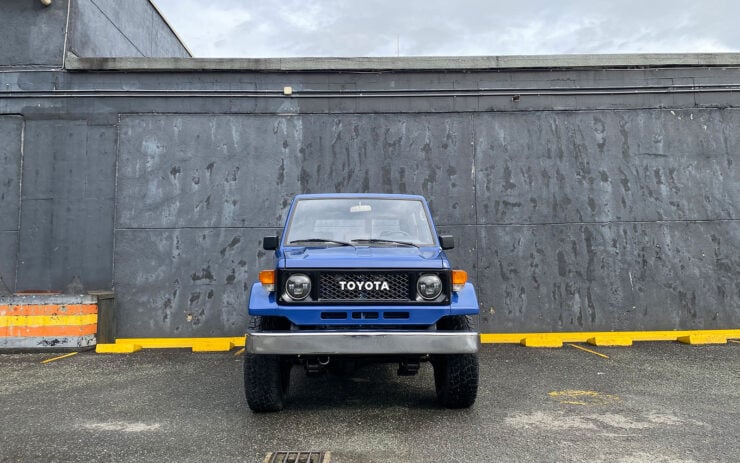
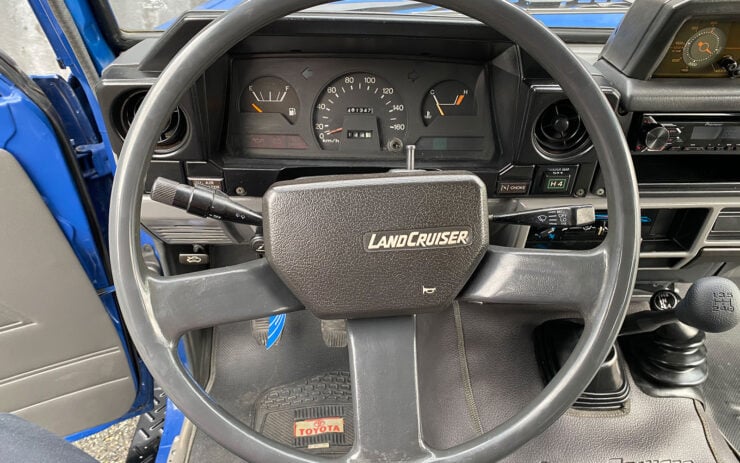
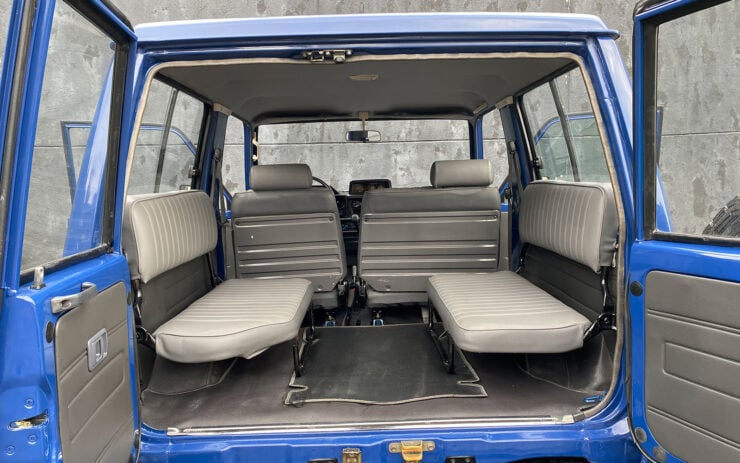
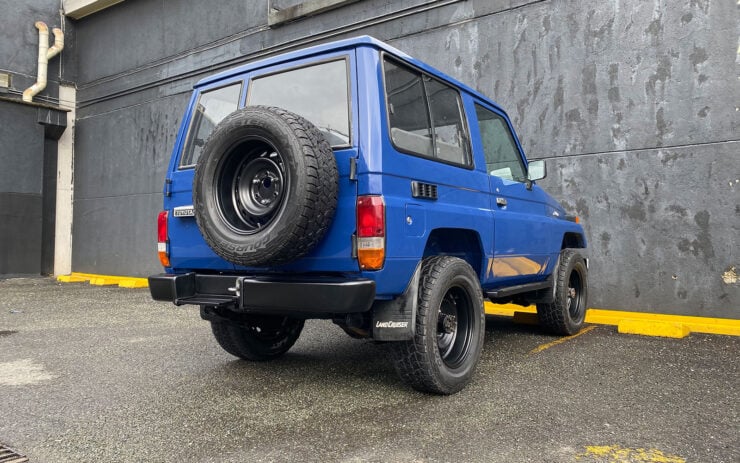

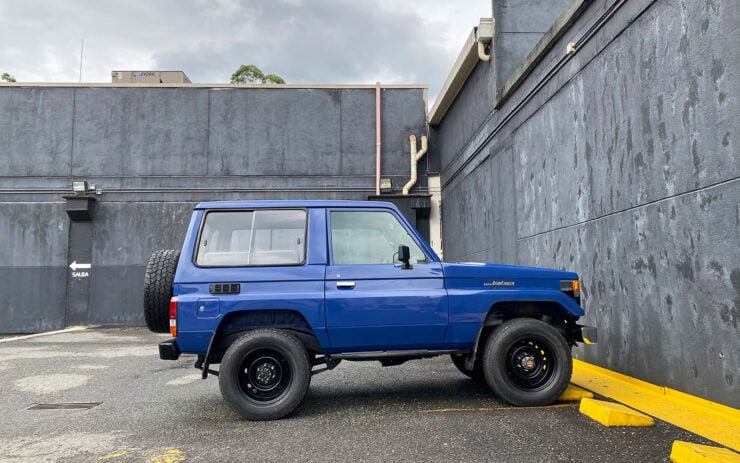
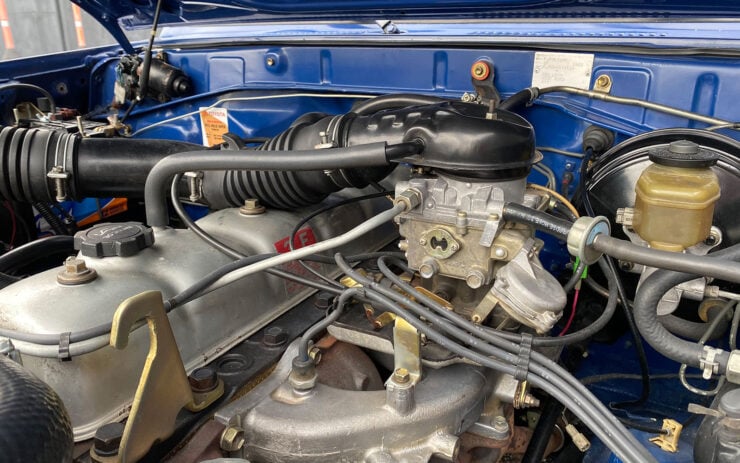
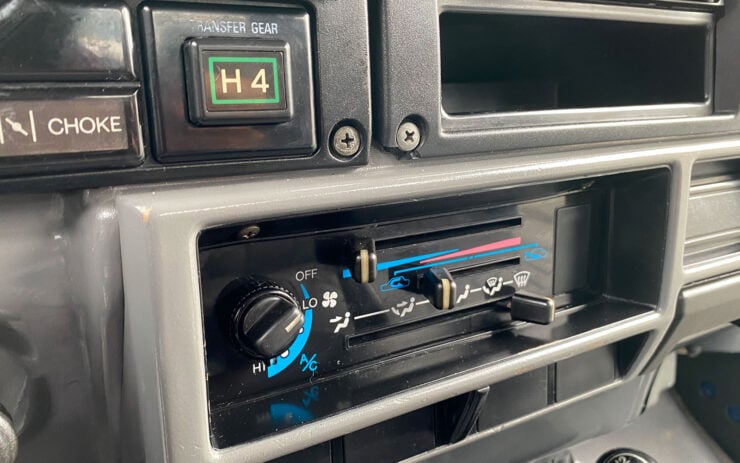
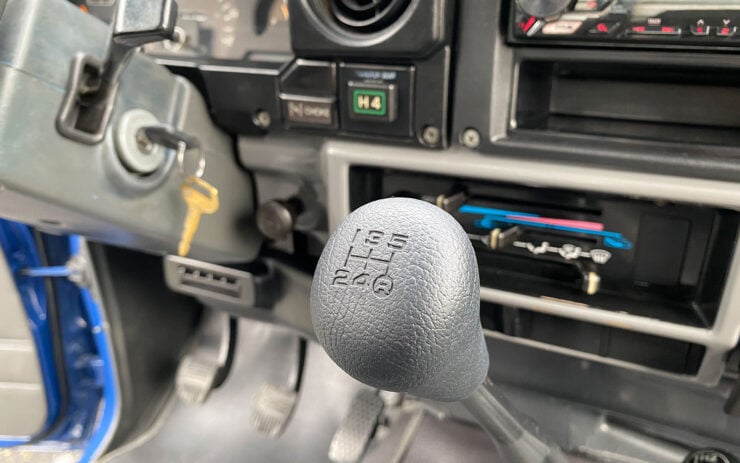
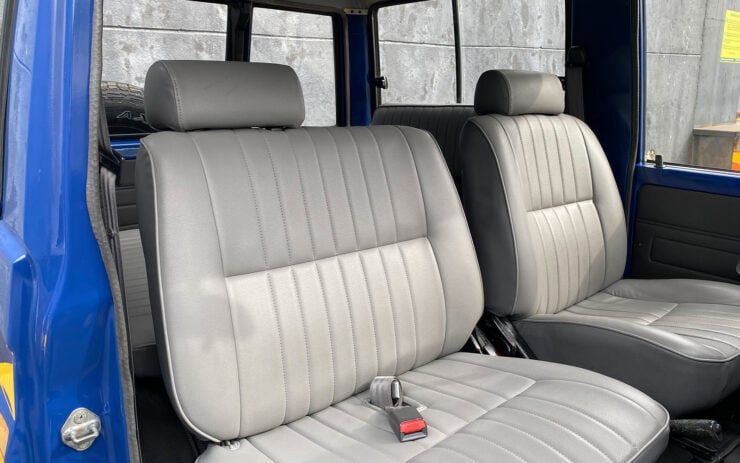
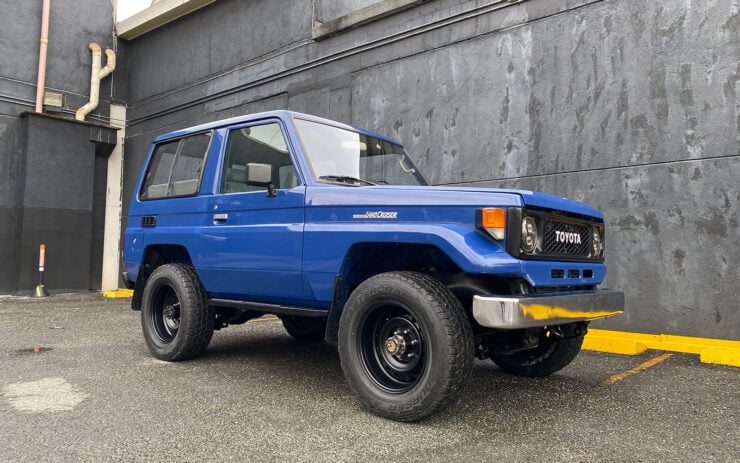
Images courtesy of Mecum

